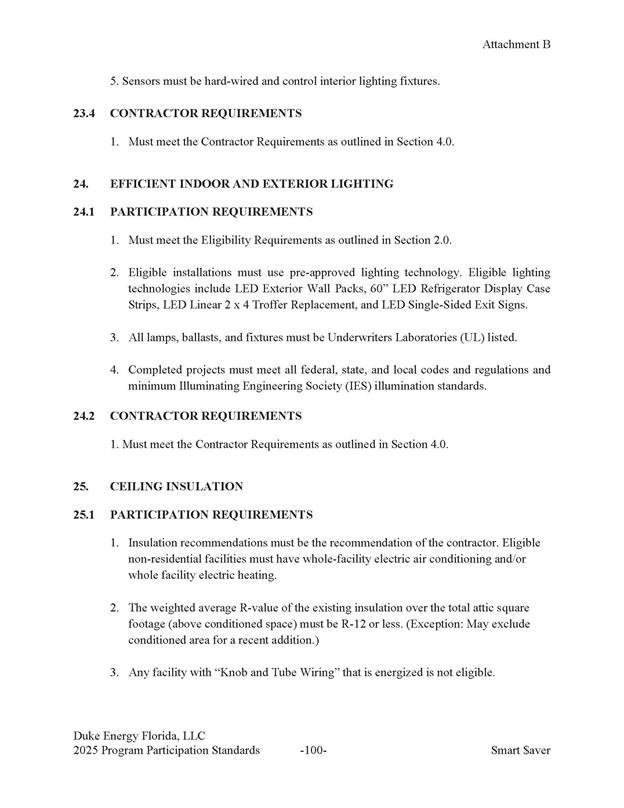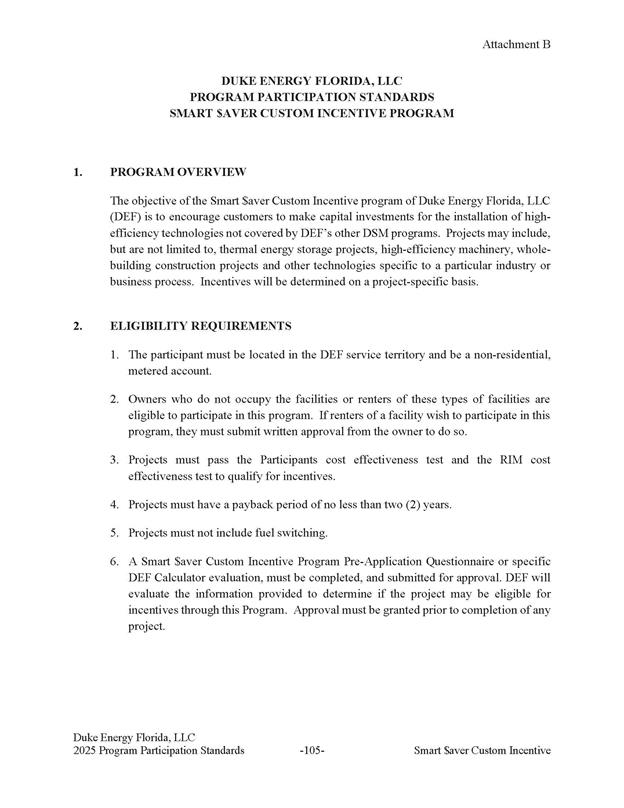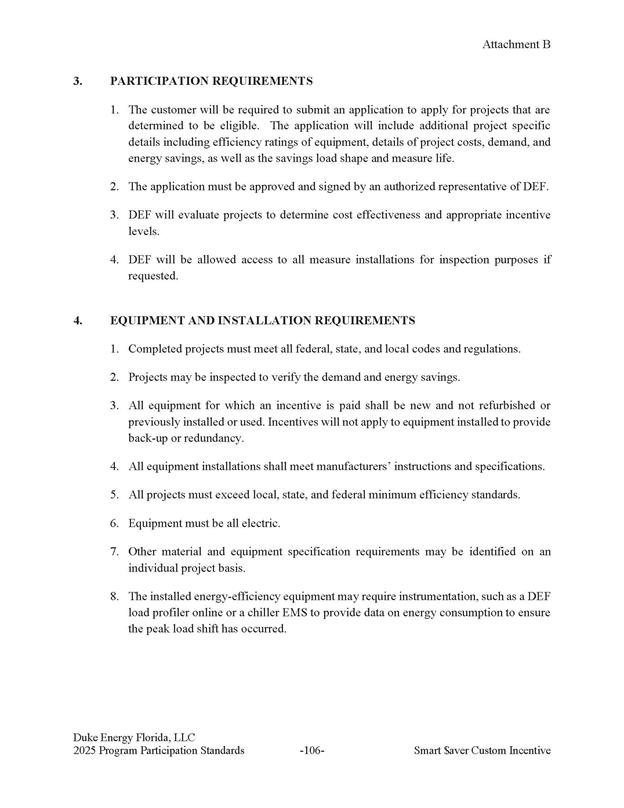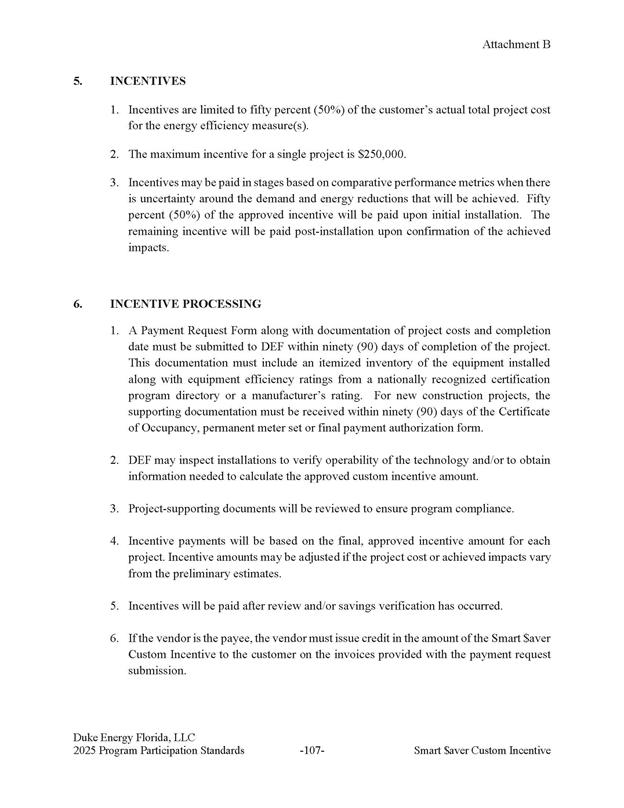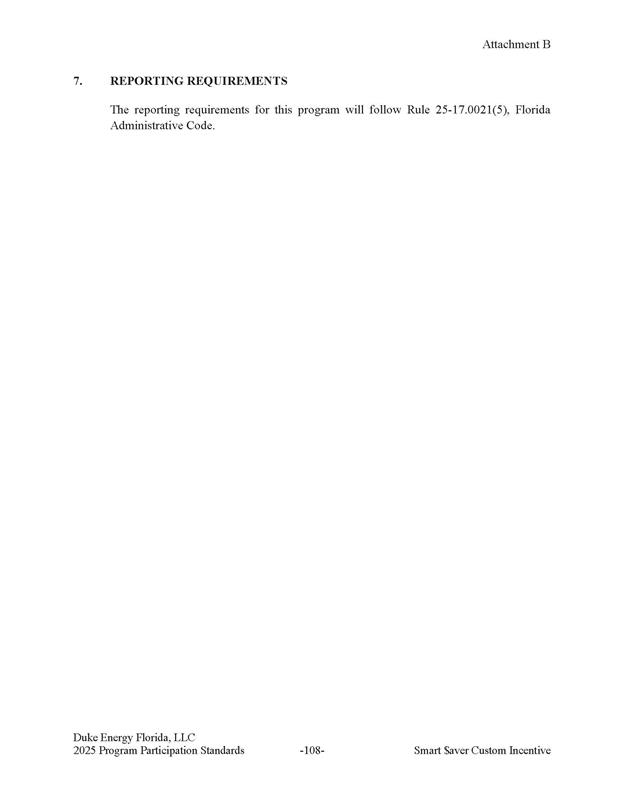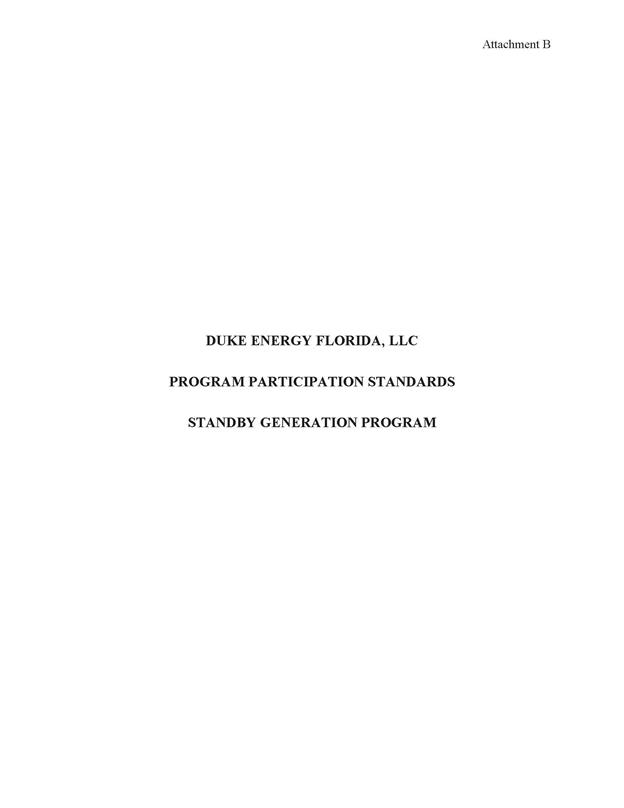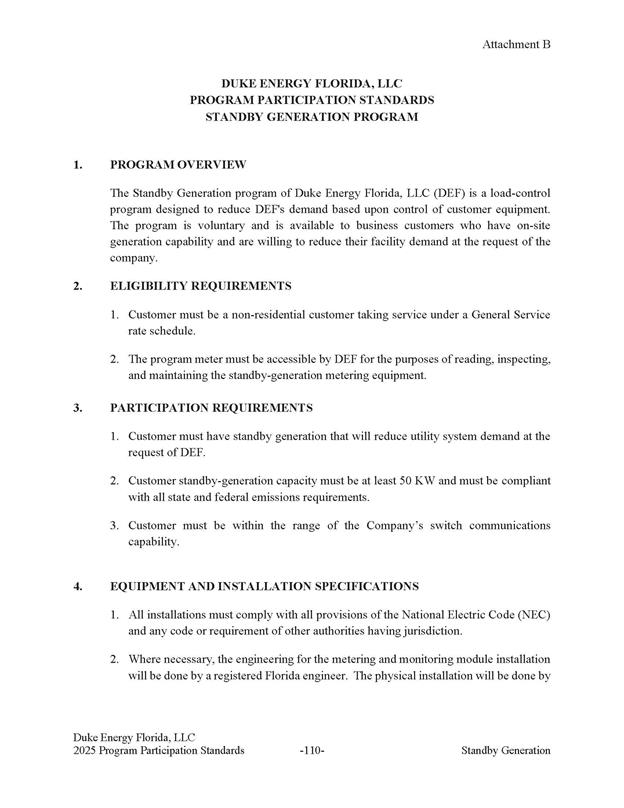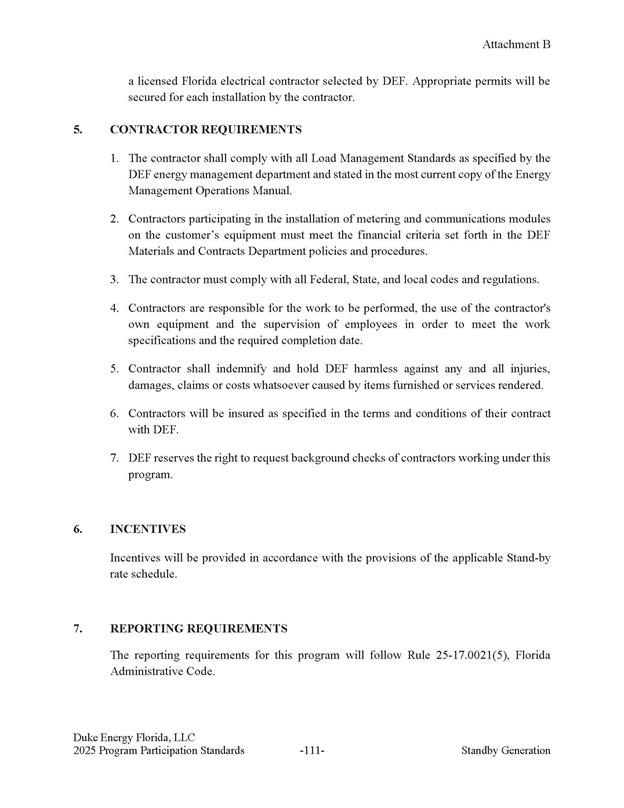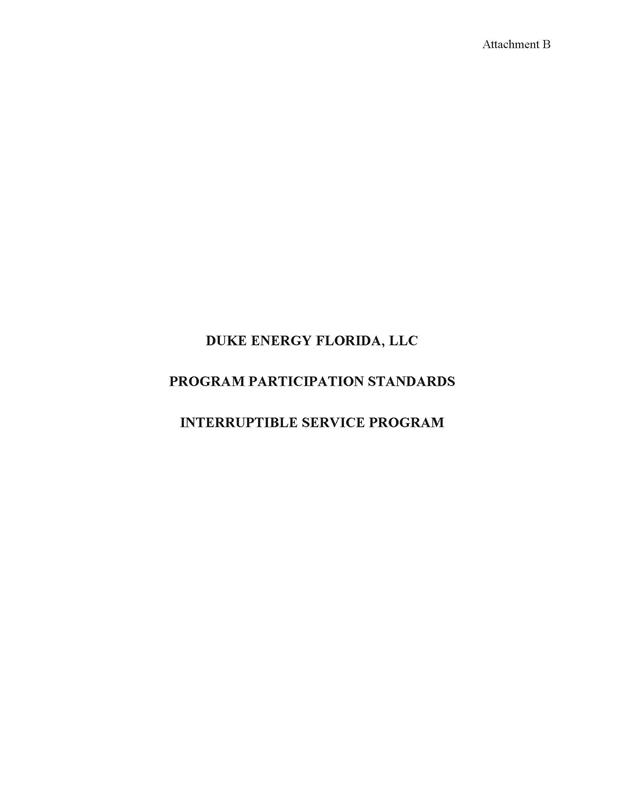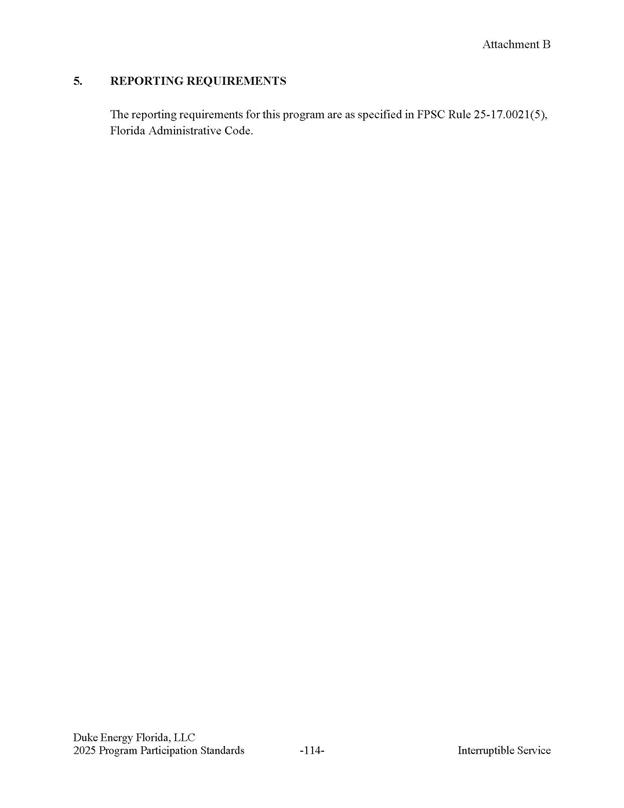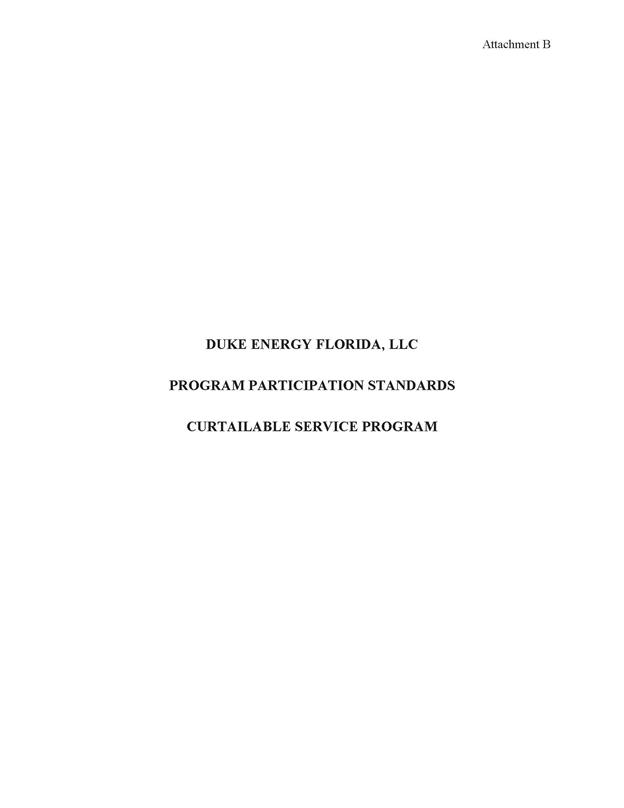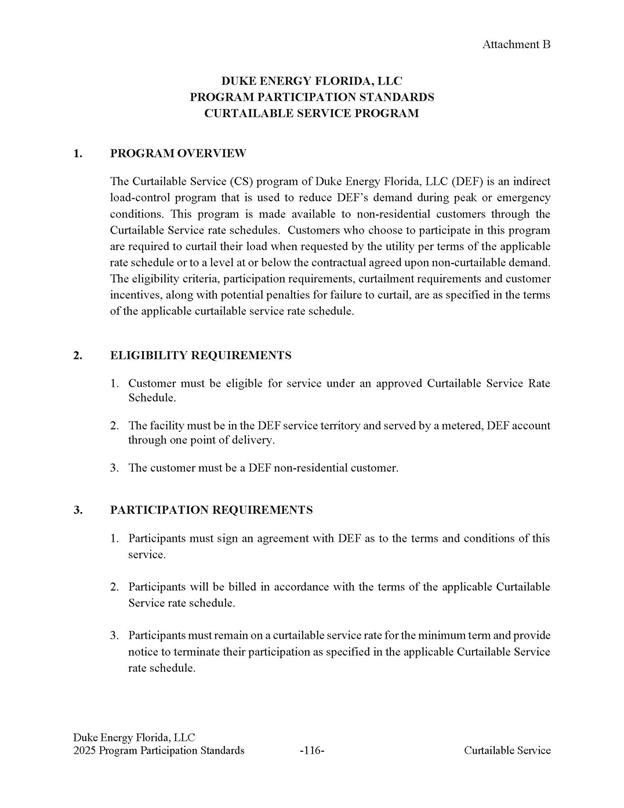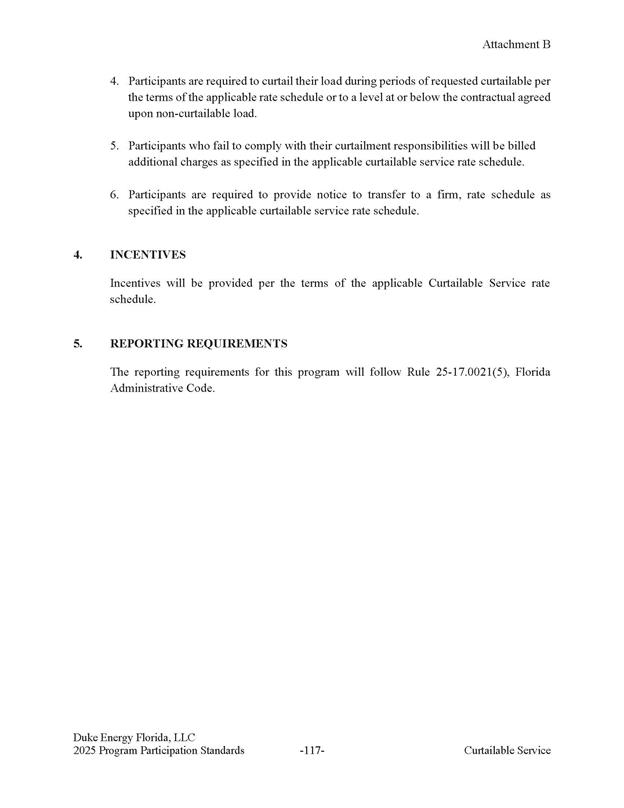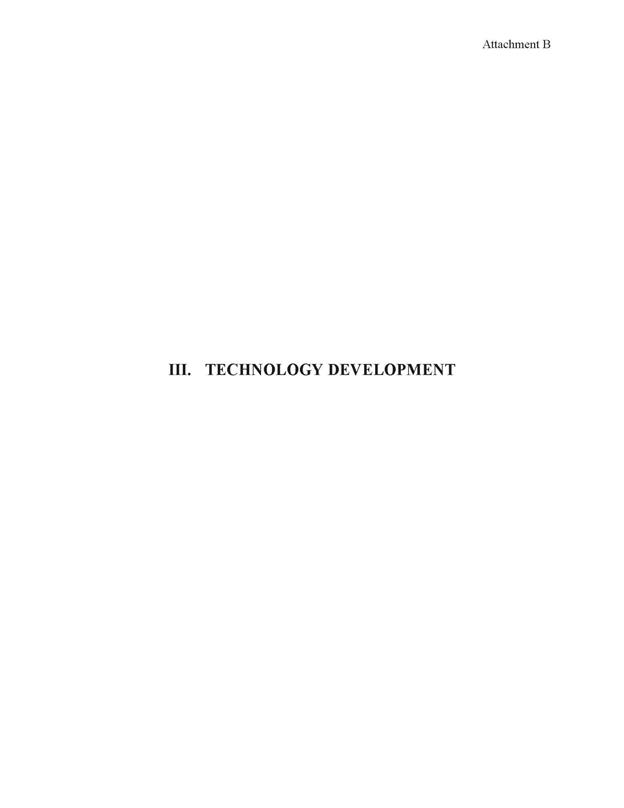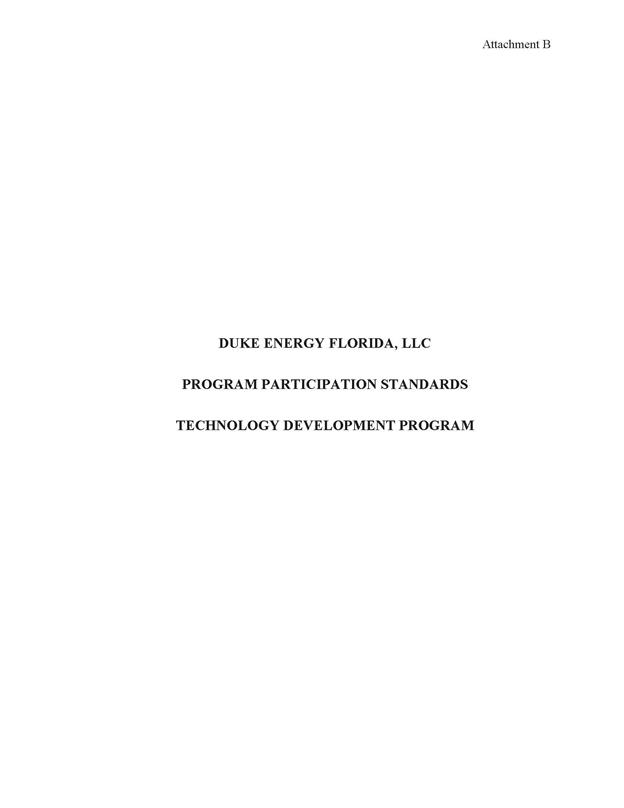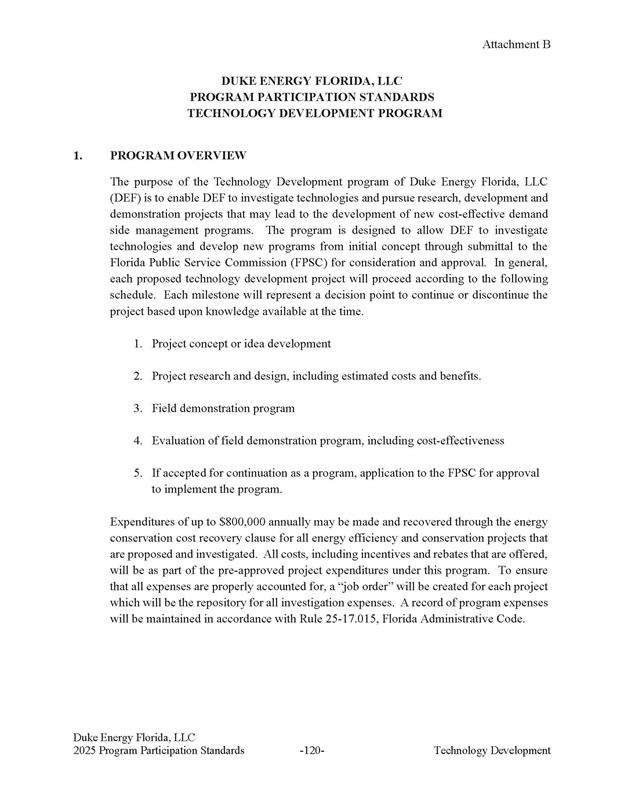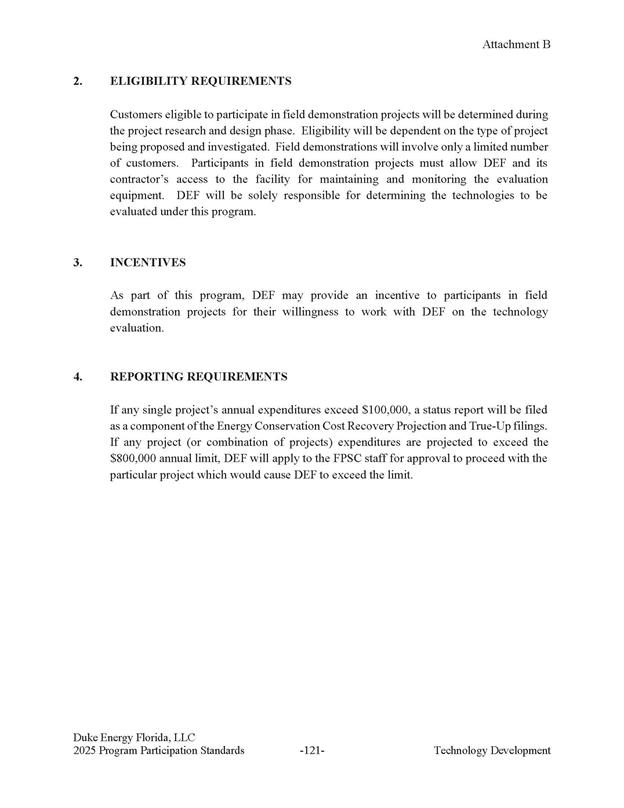Discussion
of Issues
Issue 1:
Should the Commission approve Duke Energy Florida,
LLC’s proposed DSM Plan and program standards?
Recommendation:
Yes. DEF’s DSM Plan is consistent with the proposed
programs used to establish its DSM goals and is projected to meet the annual
numeric conservation goals approved by the Commission in the 2024 Goalsetting
Order. The programs included in DEF’s proposed DSM Plan are also cost-effective
based upon the Participants, Rate Impact Measure (RIM), and Total Resource Cost
(TRC) tests. In addition, staff has reviewed DEF’s program participation
standards and they appear to be consistent with DEF’s DSM Plan. Therefore, staff
recommends that the Commission should allow DEF to file for cost recovery of
the programs included in its proposed DSM Plan in the Energy Conservation Cost
Recovery (ECCR) clause proceeding. However, DEF must demonstrate that the expenditures
to implement its DSM programs are reasonable and prudent in order to recover those
expenditures. (Thompson)
Staff Analysis:
Section
366.82(7), F.S., requires that following the adoption of annual conservation
goals, the Commission shall also require each utility subject to FEECA to
develop a DSM plan to meet its conservation goals. Rule 25-17.0021(4), Florida
Administrative Code (F.A.C.), requires each electric utility subject to FEECA
to file its DSM plan, which consists of one or more DSM programs, and program
participation standards for Commission approval.
The
Commission considers the appropriateness of DSM programs by evaluating the
following criteria, first outlined in Order No. 22176: (1) whether the program
advances the policy objectives of FEECA and its implementing rules (such as
reducing demand and energy usage); (2) whether the program is directly
monitorable and yields measurable results; and (3) whether the program is
cost-effective. Pursuant
to 366.82(7), F.S., the Commission may then elect to approve, modify, or deny
the utility’s DSM plan.
DEF’s Proposed DSM Plan
Staff
reviewed DEF’s proposed DSM Plan, including its demand and energy savings,
cost-effectiveness, and rate impact. Overall, the programs within the proposed
DSM Plan are consistent with the proposed DSM programs evaluated by the
Commission in the 2024 Goalsetting proceeding. A complete list of the programs
and a brief description of each can be found in Attachment A. Staff has also
reviewed DEF’s program participation standards, which can be found in
Attachment B, and they appear to be consistent with DEF’s DSM Plan.
DEF’s
proposed DSM Plan consists of a total of 14 programs, including six residential
programs, six commercial/industrial programs, one research and development
program, and one qualifying facilities program. DEF has proposed to continue 13
existing programs, seven with modifications, and add one new program. The program
modifications consist of deleting measures that no longer meet efficiency
standards or have not been successful in the market, and adding necessary
measures. DEF’s new program, the Multi-Family New Builder Construction
program, was included in the proposed programs used to develop DEF’s DSM goals
in its 2024 goalsetting proceeding. The Utility stated that this program was added
to allow builders to bundle multi-family measures and provide them with an
opportunity to participate in incentives.
As noted
above, the programs included in DEF’s DSM Plan are consistent with the proposed
programs used to develop DEF’s DSM goals in its 2024 goalsetting proceeding,
with the exception of the Technology Development program, DEF’s research and
development program, and the Qualifying Facilities program. While these
programs do not directly produce DSM goals savings, they have been included in
DEF’s prior DSM Plans, and they allow DEF to investigate technologies that may
support the development of new demand response and energy efficiency programs,
and meet the objectives of Florida Statutes and Commission Rules
as it relates to the purchase of as-available energy and firm energy and
capacity from qualifying facilities. As such, staff believes that the
continued inclusion of these programs in DEF’s DSM Plan is reasonable.
Regarding
program participation rates, DEF’s projected program participation rates for
the programs included in its DSM Plan are consistent with the participation
rates provided for the proposed programs used to develop its DSM goals; except
for DEF’s Neighborhood Energy Saver program, which reflects a participation
increase consistent with the Utility’s commitments in the 2024 Goalsetting
Order. The projected program demand and energy savings meet the goals
established by the Commission in the 2024 Goalsetting Order, and the programs
included in DEF’s DSM Plan are directly monitorable and measurable.
As
required by Rule 25-17.008, F.A.C., DEF provided cost-effectiveness analyses
for the programs included in its DSM Plan using the Participants, RIM, and TRC
tests. All of DEF’s DSM programs are cost-effective based on each of these
tests. Additionally, the results of these cost-effectiveness analyses are
consistent with the cost-effectiveness analyses results provided for the
proposed programs used to develop DEF’s DSM goals in its 2024 goalsetting
proceeding. Therefore, staff recommends that DEF’s DSM Plan and the associated
program participation standards be approved.
DEF
is responsible for monitoring actual participation rates and seeking Commission
action, if necessary, to modify, add, or remove programs. If DEF is unable to
meet the DSM goals established by the Commission, the Utility may be subject to
appropriate action by the Commission, up to and including financial penalties. Table
1-1 shows an estimate of the annual ECCR expenditures and monthly rate impact
on a typical residential customer for DEF’s DSM Plan.
Table 1-1
DEF’s DSM Plan Annual ECCR Costs and Estimated Monthly Rate
Impact
|
Year
|
Annual ECCR
Costs
|
Residential
Customer
|
|
($)
|
($/1,000
kWh/mo)
|
|
2025
|
143,010,107
|
3.93
|
|
2026
|
153,368,638
|
4.23
|
|
2027
|
161,545,460
|
4.46
|
|
2028
|
164,128,306
|
4.49
|
|
2029
|
143,474,848
|
3.90
|
|
2030
|
142,936,008
|
3.85
|
|
2031
|
143,212,984
|
3.81
|
|
2032
|
143,606,393
|
3.77
|
|
2033
|
144,021,687
|
3.74
|
|
2034
|
144,543,012
|
3.70
|
|
Total
|
1,483,847,442
|
-
|
Source: Document Nos. 10303-2024
and 00800-2025
Conclusion
DEF’s DSM Plan is consistent with the proposed programs
used to establish its DSM goals and is projected to meet the annual numeric
conservation goals approved by the Commission in the 2024 Goalsetting Order.
The programs included in DEF’s proposed DSM Plan are also cost-effective based upon
the Participants, RIM, and TRC tests. In addition, staff has reviewed DEF’s
program participation standards and they appear to be consistent with DEF’s DSM
Plan. Therefore, staff recommends that the Commission should allow DEF to file
for cost recovery of the programs included in its proposed DSM Plan in the ECCR
clause proceeding. However, DEF must demonstrate that the expenditures to
implement its DSM programs are reasonable and prudent in order to recover those
expenditures.
Issue 2:
Should this docket be closed?
Recommendation:
Yes. If no person whose substantial interests are
affected by the proposed agency action files a protest within 21 days of the
issuance of the order, this docket should be closed upon the issuance of a
consummating order. (Marquez, Imig)
Staff Analysis:
If no person whose substantial interests are
affected by the proposed agency action files a protest within 21 days of the
issuance of the order, this docket should be closed upon the issuance of a
consummating order.
Duke Energy Florida
Program
Descriptions
RESIDENTIAL PROGRAMS
Home
Energy Check
This residential energy audit
program provides customers with an analysis of their energy consumption as well
as educational information on how to save money by reducing energy usage. The
program offers a variety of options to customers for home energy audits
including walk-through, phone assisted, and online audits. At the completion of
the audit, DEF provides kits that contain energy saving measures that can be easily
installed by the customer.
Residential
Incentive Program
This program will provide incentives on
a variety of cost-effective measures designed to provide energy savings. This
program will primarily be comprised of measures that target heating and cooling
load such as high efficiency heat pumps, duct repair, insulation, energy
efficient windows, and home energy management systems.
Multi-Family
New Builder Construction Program
This program is designed to
provide incentives to builders and allow bundling of multi-family measures.
This program builds on customer awareness through the Home Energy Check program,
trade-ally support, and communication and marketing efforts designed to educate
builders and landlords on cost-effective measures for multi-family homes.
Neighborhood
Energy Saver Program
This program is designed to provide
energy saving education and assistance to low-income customers. DEF will
utilize U.S. census block data to identify target neighborhoods with average
incomes below 200% of the federal poverty guidelines. DEF plans to increase the
number of targeted homes from 4,500 to 5,775 annually and increase its emphasis
on installing smart thermostats for participants from 10% to 40%. In addition
to direct installation of energy saving measures, a primary focus of this
program will be to provide information and education about energy efficiency
including information about savings that can be achieved through behavioral
changes and low cost/no cost measures. DEF also plans to continue to provide
high impact measures such as ceiling insulation and duct repair through this
program.
Low Income Weatherization Assistance Program
This program will provide information
and education about energy efficiency, as well as funding for installation of
weatherization measures and high efficiency appliances. DEF plans to continue
to partner with local weatherization agencies and other types of organizations
that provide assistance to low-income communities through this program.
Residential Load Management Program
This program is a voluntary customer
program that allows DEF to reduce demand and defer generation construction.
Demand is reduced by controlling service to selected electrical equipment
through various devices and communication options installed on the customers’
premises.
COMMERCIAL/INDUSTRIAL
PROGRAMS
Business Energy Check
This program is available to all
commercial customers and will provide education and information about energy
savings opportunities specific to their business and operation. This program
will also inform customers about rebates and incentives available through DEF’s
commercial energy efficiency and load management programs. DEF currently
provides walk-through audits and phone assisted audits for commercial businesses
through this program and is planning to add online audits in the future.
Smart $aver
Program
This program provides incentives to
commercial customers on a variety of high efficiency cost-effective
measures that provide energy savings beyond the requirements of codes and
standards. The measures included in this program primarily target commercial
cooling load through high efficiency chillers and direct expansion air conditioning
systems.
Smart $aver
Custom Incentive
This program provides customized
incentives for specific innovative projects that provide energy savings not
otherwise addressed through DEF’s other commercial programs. This program is
intended to encourage commercial customers to make capital investments for the
installation of energy efficiency measures that reduce energy and peak demand.
Standby Generation Program
This program is a load control program
that provides demand savings through control of customers’ back-up generators.
The program is a voluntary program available to all commercial and industrial
customers who have on-site generation capability and are willing to allow
remote activation of their on-site generation during capacity emergencies. The
customers receive monthly bill credits per the terms of the specific stand-by
tariff under which they take service.
Interruptible Service Program
This program is available to
non-residential customers who are willing to have their power interrupted at
times of capacity shortage during peak or emergency conditions. This program
provides peak demand savings through direct load control of the customer’s
electric service. Customers will be eligible for bill credits through this
program based on the specific eligibility requirements and terms of the
applicable interruptible tariff.
Curtailable Service Program
This is a manual load control program available
to commercial customers who agree to reduce demand at times of capacity shortage
during emergency conditions. Program participants will receive monthly demand
credits per the terms of the specific curtailable tariff under which they take
service.
OTHER PROGRAMS
Technology Development
Program
This program is used to fund the
research and testing of new energy efficiency and demand response equipment and
technologies. The results of these studies are used to inform and support the
development of new energy efficiency and demand response programs.
Qualifying Facilities
Program
This program is used to manage the purchase of as-available energy
and firm energy and capacity from qualifying facilities pursuant to standard
offer and negotiated contracts. Under this program, DEF develops standard offer
contracts, negotiates, enters into, amends, and restructures firm energy and
capacity contracts with qualifying cogeneration and small power production
facilities, and administers all such contracts.







































































































